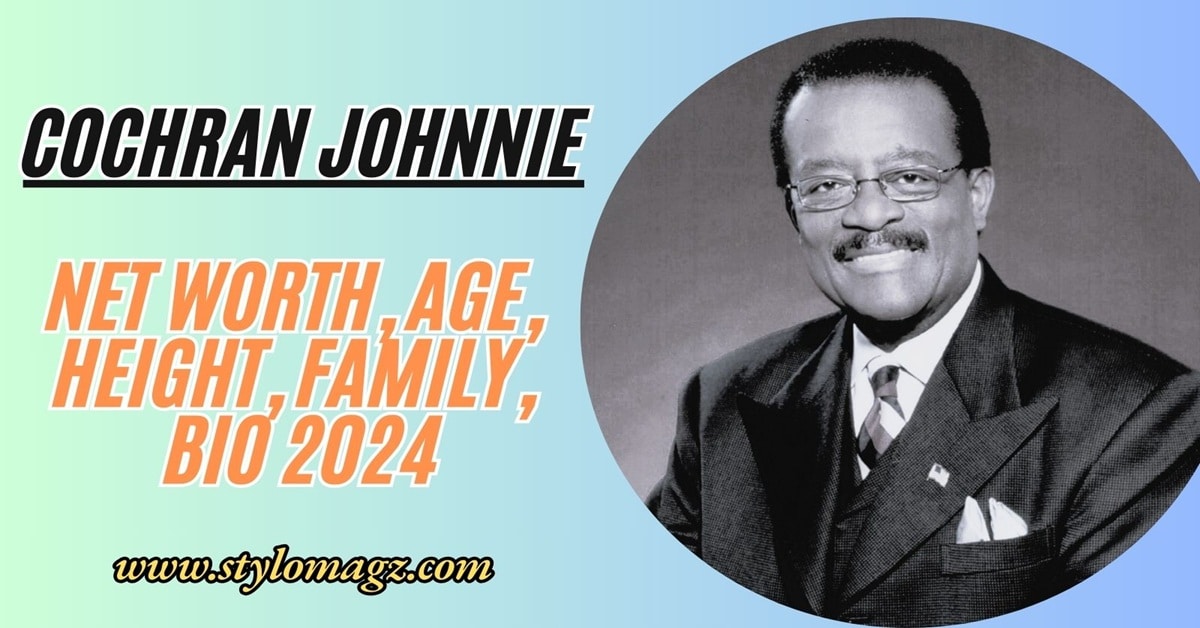Johnnie Cochran remains a legendary figure in American legal history. His charisma, legal prowess, and dedication to civil rights have left an indelible mark on both the courtroom and popular culture. In this article, we will explore Cochran’s life in detail, including his net worth, age, height, family background, and significant contributions to the legal field.
The key facts and figures about Johnnie Cochran:
| Category | Details |
|---|---|
| Full Name | Johnnie L. Cochran Jr. |
| Date of Birth | October 2, 1937 |
| Place of Birth | Shreveport, Louisiana |
| Date of Death | March 29, 2005 |
| Cause of Death | Brain tumor |
| Ethnicity | African American |
| Height | 6 feet |
| Weight | Approximately 180 pounds |
| Education | Juris Doctor (Loyola Law School), Bachelor of Arts in Business Economics (UCLA) |
| Marriage | 1. Barbara Berry (divorced) |
| 2. Sylvia Dale (married in 1985) | |
| Children | 1. Tiffany Cochran |
| 2. Melodie Cochran | |
| Net Worth | $25 million to $50 million |
| Notable Cases | O.J. Simpson Trial, Geronimo Pratt Defense, Rodney King Civil Suit |
| Famous Quote | “If it doesn’t fit, you must acquit.” |
| Key Contributions | Civil rights advocacy, police brutality cases |
| Hobbies | Golf, Jazz music |
| Published Work | “Journey to Justice” |
| Law Firm | Cochran, Cherry, Givens, Smith, Lane & Mitchell |

Who is Cochran Johnnie?
Johnnie Cochran was a prominent trial lawyer and civil rights advocate, best known for his role in high-profile cases, including the defense of O.J. Simpson during the infamous murder trial. His ability to connect with juries and his memorable phrases, such as “If it doesn’t fit, you must acquit,” have made him a household name. Cochran’s work extended beyond the courtroom; he was a passionate advocate for racial justice and police accountability.
Real Name and Ethnicity of Cochran Johnnie
Cochran’s full name is Johnnie L. Cochran Jr. He was born on October 2, 1937, in Shreveport, Louisiana, to a family that valued education and community service. As an African American, Cochran’s identity significantly influenced his career, driving him to fight against systemic racism and injustice through his work.
Early Life and Education of Cochran Johnnie
Cochran’s early life played a crucial role in shaping his future. In 1949, his family moved to Los Angeles, California, during the Great Migration, where they sought better opportunities. Growing up in a diverse urban environment, Cochran was exposed to various cultures and social issues that would later fuel his passion for civil rights.
Educational Journey
Cochran attended Los Angeles High School, where he excelled academically and participated in various extracurricular activities. After high school, he pursued higher education at Loyola Law School, earning his Juris Doctor. His academic achievements laid a strong foundation for his legal career. He also obtained a Bachelor of Arts in Business Economics from the University of California, Los Angeles (UCLA), further enhancing his analytical skills.
Educational Milestones
| Year | Event |
|---|---|
| 1955 | Graduated from Los Angeles High School |
| 1962 | Earned Juris Doctor from Loyola Law School |
| 1963 | Received Bachelor of Arts from UCLA |
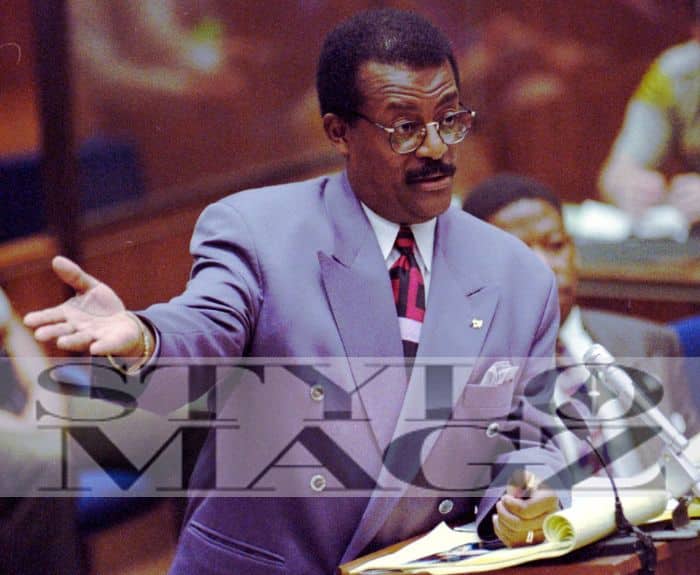
Parents and Siblings of Cochran Johnnie
Johnnie grew up in a supportive family that emphasized education and community involvement. His father, Johnnie L. Cochran Sr., was a businessman, and his mother, Hattie Bass Cochran, was a homemaker. Cochran had several siblings, which fostered a sense of community and teamwork—values he carried into his professional life.
Family Influence
Cochran’s parents instilled in him the importance of hard work and perseverance. His father’s entrepreneurial spirit and his mother’s nurturing nature contributed to his well-rounded upbringing. This familial support system played a crucial role in shaping Cochran’s character and work ethic.
Wife and Girlfriend of Cochran Johnnie
Cochran was married twice, and both marriages were significant aspects of his personal life. His first marriage was to Barbara Berry, with whom he had two daughters, Tiffany and Melodie. After their divorce, he married Sylvia Dale in 1985. Sylvia played a significant role in Johnnie’s life, supporting him through various challenges, including his battle with cancer.
Family Overview
| Relationship | Name | Notes |
|---|---|---|
| Wife | Barbara Berry | First wife, two daughters |
| Wife | Sylvia Dale | Second wife |
| Daughter | Tiffany Cochran | Works in the legal field |
| Daughter | Melodie Cochran | Active in community service |
Age, Height, Weight, and Figure of Cochran Johnnie
As of 2024, Johnnie Cochran would have been 86 years old. During his life, he stood approximately 6 feet tall and had a commanding presence that contributed to his effectiveness in the courtroom. His weight fluctuated but generally remained around 180 pounds, maintaining a sharp and professional appearance.
Physical Presence
Cochran’s height and stature were complemented by his confident demeanor. His ability to engage with juries and command attention made him an effective advocate. His physical presence was an asset in high-stakes trials, allowing him to project authority and charisma.
Career of Cochran Johnnie
Cochran’s career spanned several decades and included numerous high-profile cases that showcased his legal talent and commitment to justice. He began his legal career in the 1960s, focusing on civil rights and police brutality cases. His representation of Geronimo Pratt, a former Black Panther wrongfully convicted of murder, highlighted his commitment to justice.
Key Highlights of His Career
- O.J. Simpson Trial: Cochran gained national fame as the lead attorney for O.J. Simpson during his trial for the murder of Nicole Brown Simpson and Ron Goldman. His defense strategy and courtroom tactics captivated the nation.
- Rodney King Case: He also played a vital role in the Rodney King case, representing King in his civil lawsuit against the LAPD after the infamous beating captured on video.
- Legal Advocacy: Throughout his career, Cochran advocated for civil rights, focusing on issues like police brutality and racial discrimination.
Notable Cases
| Case | Year | Role |
|---|---|---|
| O.J. Simpson Trial | 1995 | Lead Defense Attorney |
| Geronimo Pratt Defense | 1972 | Defense Attorney |
| Rodney King Civil Suit | 1994 | Lead Attorney |
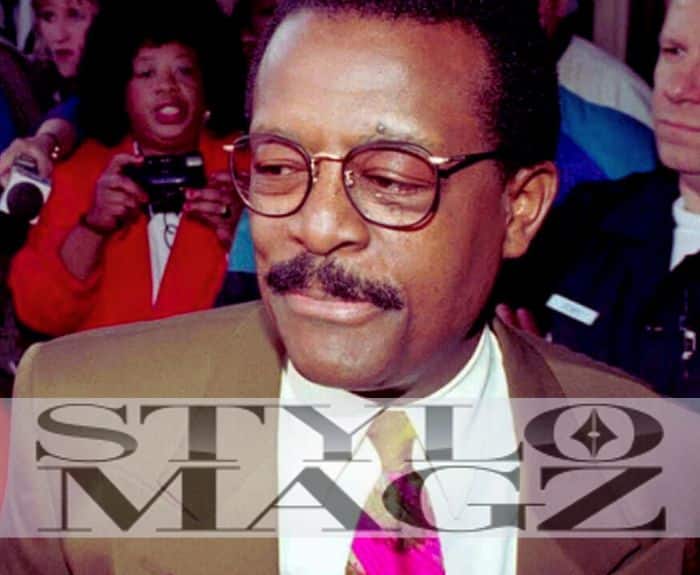
Before Fame and Fame Reason
Before rising to fame, Cochran worked as a prosecutor in the Los Angeles City Attorney’s Office. His transition to defense work allowed him to advocate for those wronged by the system, setting the stage for his later successes. The O.J. Simpson trial catapulted him into the national spotlight, where his blend of charisma and legal acumen shone.
The O.J. Simpson Trial
The O.J. Simpson trial was a watershed moment in American legal history. Cochran’s defense strategy focused on the allegations of police misconduct and racial bias, which resonated with many Americans. His famous line, “If it doesn’t fit, you must acquit,” became a rallying cry for those who believed in Simpson’s innocence. The trial’s outcome not only affected the lives of those directly involved but also sparked nationwide discussions about race, justice, and media influence.
Nationality and Religion of Cochran Johnnie
Johnnie Cochran was an American citizen. His Christian faith played an essential role in shaping his values and approach to life. Cochran often spoke about the importance of morality and ethics in his work, reflecting his belief in justice and righteousness.
Faith and Values
Cochran’s faith influenced his commitment to civil rights and social justice. He believed in the fundamental rights of all individuals, regardless of race or background, and this belief drove him to fight for those marginalized by society.
Social Media Presence
Although Cochran passed away in 2005, his legacy continues through various social media platforms. Fans and legal enthusiasts celebrate his work by sharing quotes, case analyses, and tributes online. His official estate manages his legacy through various channels, ensuring that his contributions to justice are remembered.
Online Legacy
Social media has allowed for a renewed interest in Cochran’s life and work. Platforms like Twitter and Instagram feature quotes, video clips from his court appearances, and discussions about his impact on the legal system. These online discussions help keep his memory alive, inspiring new generations of lawyers and activists.
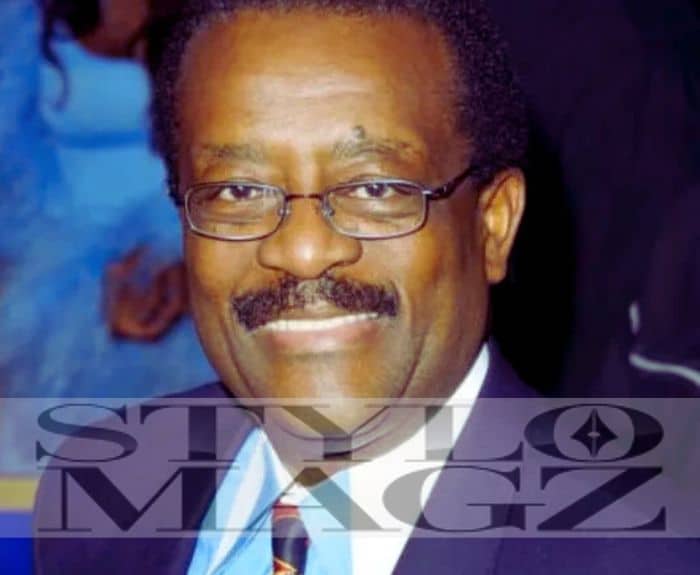
Net Worth of Cochran Johnnie
Johnnie Cochran’s net worth at the time of his death was estimated to be between $25 million and $50 million. His wealth came from his successful law practice, high-profile cases, and appearances on television. Cochran’s firm, Cochran, Cherry, Givens, Smith, Lane & Mitchell, remains influential in the legal community.
Breakdown of Net Worth
| Source of Income | Estimated Amount |
|---|---|
| Legal Practice | $20 million |
| Television Appearances | $5 million |
| Book Sales | $1 million |
Legacy and Impact
Cochran’s legacy is profound. He not only transformed the legal landscape but also became a symbol of the fight for racial justice. His courtroom strategies and public speaking skills have influenced countless lawyers who aspire to follow in his footsteps. Cochran’s book, “Journey to Justice,” details his experiences and insights into the legal system.
Influence on the Legal System
Cochran’s work has had a lasting impact on the legal system. He advocated for reforms in police practices, emphasizing the need for accountability and transparency. His commitment to civil rights inspired a new generation of African American lawyers and activists, many of whom cite him as a major influence in their careers.
Cultural Impact
Cochran’s influence extends beyond the legal field into popular culture. His courtroom techniques and famous quotes have been referenced in movies, television shows, and books. He has become a cultural icon, representing the struggle for justice and equality in America.
Death Cause
Johnnie Cochran passed away on March 29, 2005, due to a brain tumor. His death marked the loss of a significant figure in the fight for justice and equality. Following his passing, many tributes poured in, celebrating his contributions to both law and society. His funeral was attended by notable figures from politics, entertainment, and law, reflecting the widespread respect he commanded.
Legacy After Death
Cochran’s legacy continues to inspire discussions about race, justice, and the legal system. His influence can be seen in ongoing debates about police brutality, civil rights, and the need for reform within the judicial system. Organizations and initiatives continue to honor his work, ensuring that his fight for justice is not forgotten.
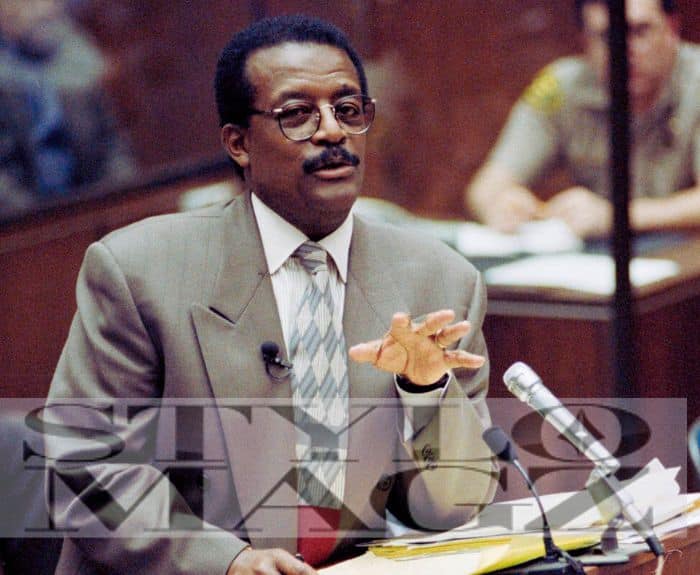
Hobbies of Cochran Johnnie
Outside the courtroom, Cochran enjoyed several hobbies. His love for golf and jazz music provided him with a creative outlet and a way to relax. He often participated in charity golf tournaments, using his passion for the sport to support various causes.
Favorite Pastimes
- Golf: Regular participant in charity events. Cochran was known for his competitive spirit on the golf course and often used these events to raise funds for civil rights organizations.
- Jazz: Avid listener and supporter of jazz musicians. He frequently attended jazz concerts and valued the genre for its improvisational nature, which mirrored his own approach to law.
Interesting Facts About Cochran Johnnie
- Eloquent Advocate: He was known for his charismatic courtroom presence, which helped him connect with juries and judges alike. His storytelling ability made complex legal arguments accessible to the average person.
- Published Author: Cochran authored the book “Journey to Justice,” detailing his experiences, beliefs, and the challenges he faced throughout his career.
- Cultural Reference: His famous quote, “If it doesn’t fit, you must acquit,” has become a part of popular culture, symbolizing his approach to legal defense.
- Mentorship: Cochran was a mentor to many young African American lawyers, promoting diversity in the legal field and encouraging them to pursue careers in law.
FAQs
1. Who was Johnnie Cochran?
Johnnie Cochran was a prominent American trial lawyer known for his civil rights advocacy and high-profile cases.
2. What is Johnnie Cochran’s ethnicity?
He was African American.
3. What was Johnnie Cochran’s most famous case?
His most famous case was the defense of O.J. Simpson in the murder trial.
4. What was his role in civil rights advocacy?
He fought against police brutality and racial discrimination.
5. How did Johnnie Cochran influence the legal system?
He advocated for reforms in police practices and raised awareness of racial injustice.
Conclusion
Johnnie Cochran‘s life and career exemplify the power of advocacy and the impact one individual can have on the legal system and society at large. His commitment to justice, racial equality, and civil rights continues to inspire future generations. As we remember Cochran, we celebrate not just his remarkable achievements but also the enduring legacy he leaves behind. His work serves as a reminder of the ongoing struggle for justice and the importance of standing up for what is right.
Cochran’s contributions to the legal field, combined with his cultural impact, ensure that his story will be told for years to come. He remains a beacon of hope for many, exemplifying the strength and resilience required to fight for justice in an often unjust world.

Jack Henry is a dedicated author at Stylo Magz, specializing in celebrity wiki and biographies. With a knack for uncovering intriguing details, Jack crafts engaging profiles that keep readers informed and entertained. His passion for storytelling and sharp research skills make his work a must-read for celebrity enthusiasts.

